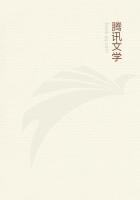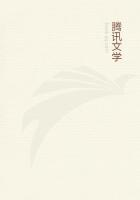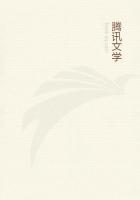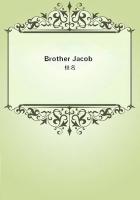For is it not extraordinary,that in these fine deive pieces,these innumerable odes and elegies,which are in the mouths of all the world,and many of which have been the entertainment of ages,that in these pieces which describe love with such a passionate energy,and represent its object in such an infinite variety of lights,not one word is said of proportion,if it be,what some insist it is,the principal component of beauty;whilst,at the same time,several other qualities are very frequently and warmly mentioned?But if proportion has not this power,it may appear odd how men came originally to be so pre-possessed in its favour.It arose,I imagine,from the fondness I have just mentioned,which men bear so remarkably to their own works and notions;it arose from false reasonings on the effects of the customary figure of animals;it arose from the Platonic theory of fitness and aptitude.For which reason,in the next section,I shall consider the effects of custom in the figure of animals;and afterwards the idea of fitness:since,if proportion does not operate by a natural power attending some measures,it must be either by custom,or the idea of utility;there is no other way.
V
Proportion Further Considered If I am not mistaken,a great deal of the prejudice in favour of proportion has arisen,not so much from the observation of any certain measures found in beautiful bodies,as from a wrong idea of the relation which deformity bears to beauty,to which it has been considered as the opposite;on this principle it was concluded,that where the causes of deformity were removed,beauty must naturally and necessarily be introduced.This I believe is a mistake.
For deformity is opposed not to beauty,but to the complete common form.
If one of the legs of a man be found shorter than the other,the man is deformed;because there is something wanting to complete the whole idea we form of a man;and this has the same effect in natural faults,as maiming and mutilation produce from accidents.So if the back be humped,the man is deformed;because his back has an unusual figure,and what carries with it the idea of some disease or misfortune.So if a man's neck be considerably longer or shorter than usual,we say he is deformed in that part,because men are not commonly made in that manner.But surely every hour's experience may convince us,that a man may have his legs of an equal length,and resembling each other in all respects,and his neck of a just size,and his back quite straight,without having at the same time the least perceivable beauty.
Indeed beauty is so far from belonging to the idea of custom,that in reality what affects us in that manner is extremely rare and uncommon.The beautiful strikes us as much by its novelty as the deformed itself.It is thus in those species of animals with which we are acquainted;and if one of a new species were represented,we should by no means wait until custom had settled an idea of proportion,before we decided concerning its beauty or ugliness:
which shows that the general idea of beauty can be no more owing to customary than to natural proportion.Deformity arises from the want of the common proportions;but the necessary result of their existence in any object is not beauty.If we suppose proportion in natural things to be relative to custom and use,the nature of use and custom will show,that beauty,which is a positive and powerful quality,cannot result from it.We are so wonderfully formed,that,whilst we are creatures vehemently desirous of novelty,we are as strongly attached to habit and custom.But it is the nature of things which hold us by custom,to affect us very little whilst we are in possession of them,but strongly when they are absent.I remember to have frequented a certain place every day for a long time together;and I may truly say,that so far from finding pleasure in it,I was affected with a sort of weariness and disgust;I came,I went,I returned,without pleasure;yet if by any means I passed by the usual time of my going thither,I was remarkably uneasy,and was not quiet till I had got into my old track.They who use snuff,take it almost without being sensible that they take it,and the acute sense of smell is deadened,so as to feel hardly anything from so sharp a stimulus;yet deprive the snuff-taker of his box,and he is the most uneasy mortal in the world.Indeed so far are use and habit from being causes of pleasure,merely as such,that the effect of constant use is to make all things of whatever kind entirely unaffecting.















